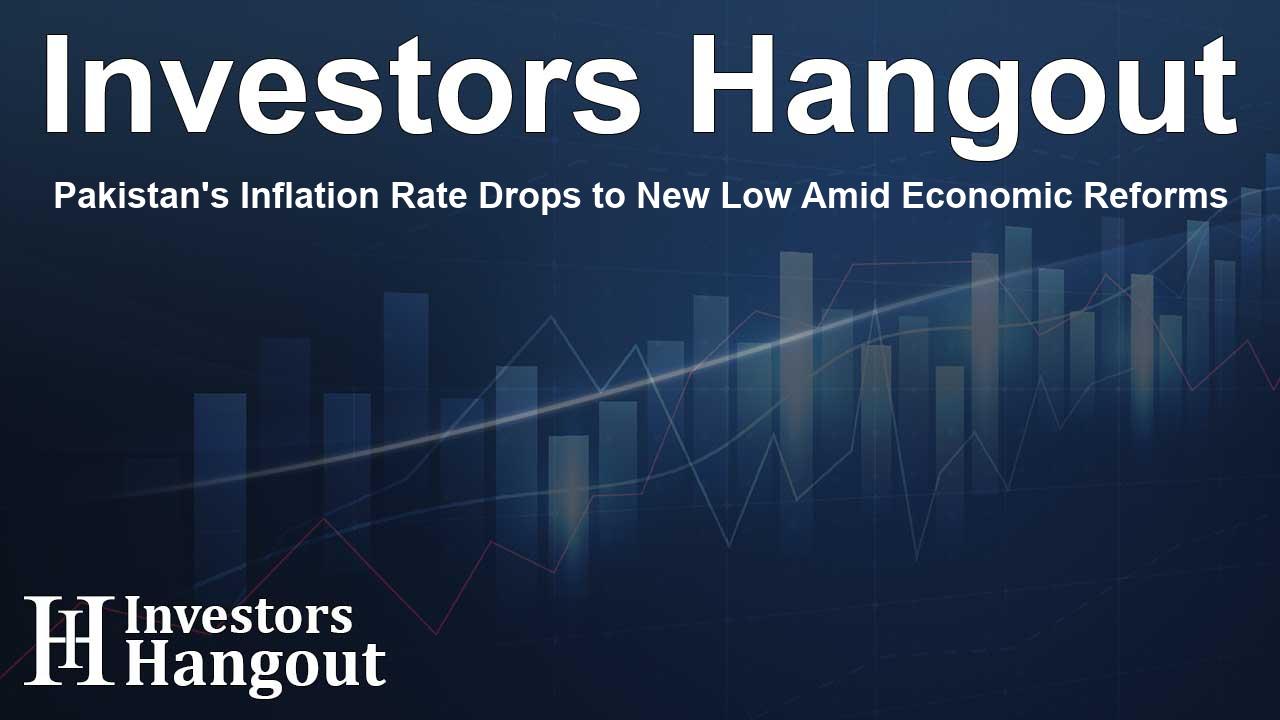Pakistan's Inflation Rate Drops to New Low Amid Economic Reforms

Pakistan's Inflation Rate Reaches 6.9% in Recent Report
Recently, the annual consumer price inflation in Pakistan slowed to a notable 6.9% for September, marking the lowest rate in over three years. This development comes as the government aims to align with the International Monetary Fund's (IMF) conditions, a task that has raised concerns for many households regarding its substantial financial impact.
Comparative Analysis of Monthly Inflation Rates
In August, the annual inflation rate had registered a decrease to 9.6%, representing the first instance of single-digit inflation in quite some time. The latest statistics released by the Pakistan Bureau of Statistics indicate that the monthly consumer price index for September reflected a decrease of 0.5%.
Expert Insights on Monetary Policy
Mohammad Sohail, the chief executive officer at brokerage Topline Securities, emphasized that aggressive monetary tightening by the State Bank of Pakistan (SBP) has successfully kept inflation below 7%—one year ahead of initial targets. This proactive approach demonstrates a commitment to maintaining economic stability and controlling rising prices.
Interest Rate Adjustments by the Central Bank
This year, the central bank has effectively cut interest rates three times, expressing confidence in their strategies to keep inflation in check after having previously raised rates to an unprecedented 22%. These adjustments aim to foster growth while managing inflation.
Future Inflation Expectations
In an economic outlook recently highlighted by the finance ministry, projections for annual inflation suggest a decrease to between 8-9% in the months of September and October. This forecast indicates a cautious optimism regarding the country's economic trajectory.
The Role of the IMF Loan Programme
Last month, the International Monetary Fund approved a significant $7 billion loan programme for Pakistan, which incorporates various stringent measures. These measures include higher taxes on farm incomes and increases in electricity prices. Such changes aim to stabilize the economy but also stir concerns among the lower and middle-class populations about the potential for increased living costs in a climate already grappling with inflationary pressures.
Conclusion
As Pakistan navigates these economic reforms, the impacts on the everyday lives of its citizens remain a critical concern. With rising prices looming, the balance between fiscal stability and affordability continues to challenge the government. Going forward, it will be essential to monitor how these measures affect inflation rates and the overall economic landscape.
Frequently Asked Questions
What is the current inflation rate in Pakistan?
The annual inflation rate in Pakistan has lowered to 6.9% for September, the lowest in over three years.
How has the State Bank of Pakistan influenced inflation?
The SPB has utilized aggressive monetary tightening, which has successfully brought inflation levels below 7% ahead of projections.
What measures are included in the IMF loan programme for Pakistan?
The IMF's loan programme includes tough measures, such as higher taxes on farm incomes and rising electricity prices.
What are the future inflation projections for Pakistan?
Projections suggest that annual inflation may decrease further to between 8-9% in the upcoming months of September and October.
How can citizens prepare for economic changes?
Citizens should stay informed about economic policies, adjust their budgets accordingly, and seek advice on financial planning amid changing economic conditions.
About Investors Hangout
Investors Hangout is a leading online stock forum for financial discussion and learning, offering a wide range of free tools and resources. It draws in traders of all levels, who exchange market knowledge, investigate trading tactics, and keep an eye on industry developments in real time. Featuring financial articles, stock message boards, quotes, charts, company profiles, and live news updates. Through cooperative learning and a wealth of informational resources, it helps users from novices creating their first portfolios to experts honing their techniques. Join Investors Hangout today: https://investorshangout.com/
Disclaimer: The content of this article is solely for general informational purposes only; it does not represent legal, financial, or investment advice. Investors Hangout does not offer financial advice; the author is not a licensed financial advisor. Consult a qualified advisor before making any financial or investment decisions based on this article. The author's interpretation of publicly available data shapes the opinions presented here; as a result, they should not be taken as advice to purchase, sell, or hold any securities mentioned or any other investments. The author does not guarantee the accuracy, completeness, or timeliness of any material, providing it "as is." Information and market conditions may change; past performance is not indicative of future outcomes. If any of the material offered here is inaccurate, please contact us for corrections.